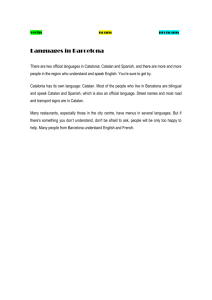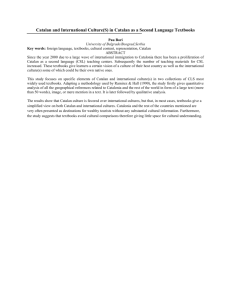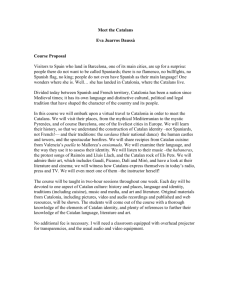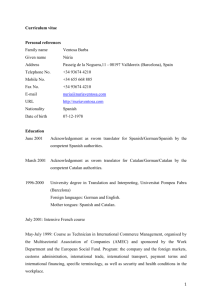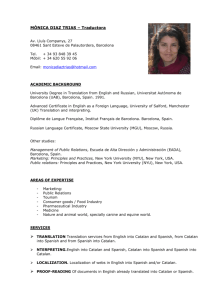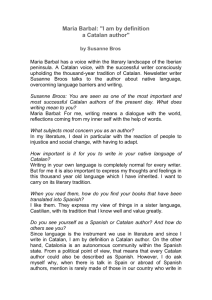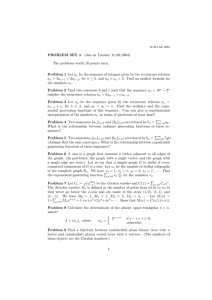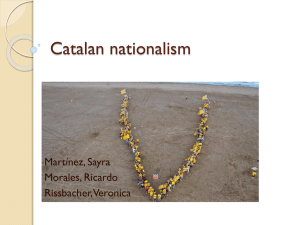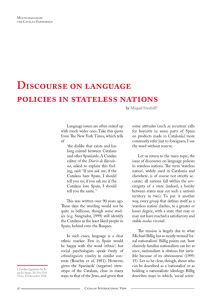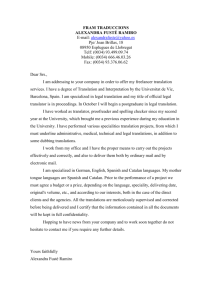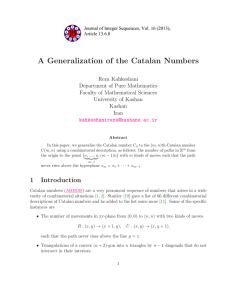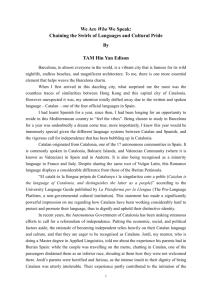Teachers notes - Why study languages?
advertisement
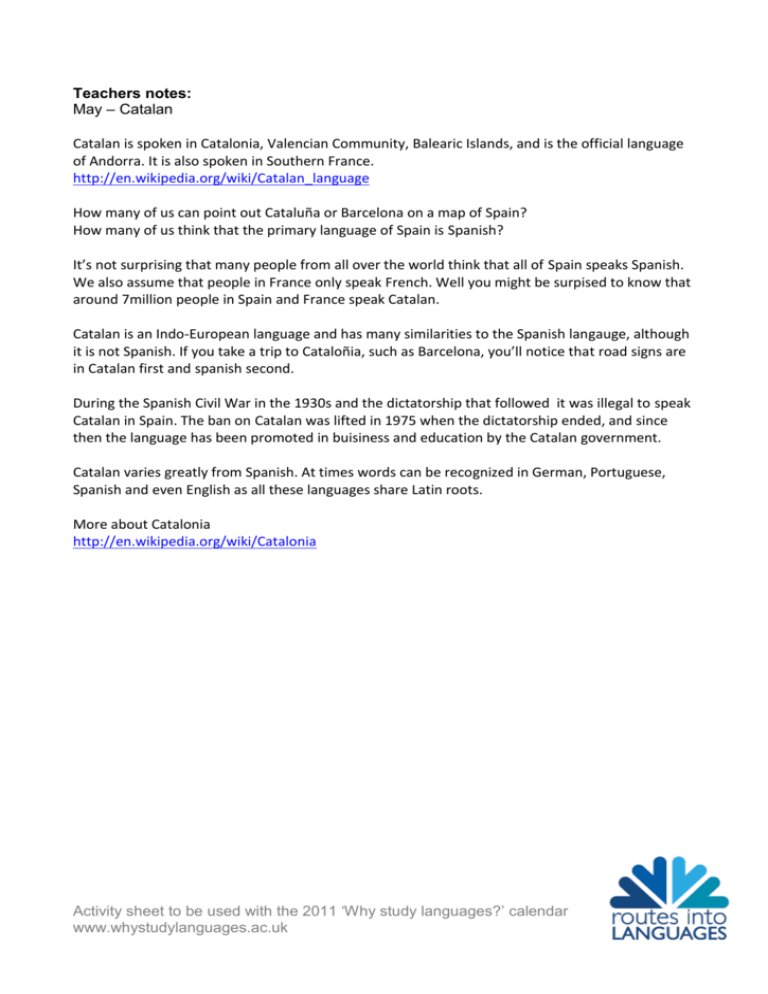
Teachers notes: May – Catalan Catalan is spoken in Catalonia, Valencian Community, Balearic Islands, and is the official language of Andorra. It is also spoken in Southern France. http://en.wikipedia.org/wiki/Catalan_language How many of us can point out Cataluña or Barcelona on a map of Spain? How many of us think that the primary language of Spain is Spanish? It’s not surprising that many people from all over the world think that all of Spain speaks Spanish. We also assume that people in France only speak French. Well you might be surpised to know that around 7million people in Spain and France speak Catalan. Catalan is an Indo-European language and has many similarities to the Spanish langauge, although it is not Spanish. If you take a trip to Cataloñia, such as Barcelona, you’ll notice that road signs are in Catalan first and spanish second. During the Spanish Civil War in the 1930s and the dictatorship that followed it was illegal to speak Catalan in Spain. The ban on Catalan was lifted in 1975 when the dictatorship ended, and since then the language has been promoted in buisiness and education by the Catalan government. Catalan varies greatly from Spanish. At times words can be recognized in German, Portuguese, Spanish and even English as all these languages share Latin roots. More about Catalonia http://en.wikipedia.org/wiki/Catalonia Activity sheet to be used with the 2011 ‘Why study languages?’ calendar www.whystudylanguages.ac.uk 1st Activity Can you spot the differences and similarities in the two languages? (see Facebook home pages) Catalan: Spanish: Activity sheet to be used with the 2011 ‘Why study languages?’ calendar www.whystudylanguages.ac.uk 2nd Activity Do you think if you could speak one of these languages that you would be able to get by in the other? 3rd Activity Why not do some research and find more out about Cataloña and the Catalan language? Create a poster based on one of the following themes: Antoni Gaudí (architect) Sport / football Famous artists (Joan Miró, Salvador Dalí, Antoni Tàpies) Food The beaches Las Ramblas Traditions, festivities and celebrations: castell (human towers), "Dia del Llibre" (Book Day), Tió de Nadal (Christmas log) Activity sheet to be used with the 2011 ‘Why study languages?’ calendar www.whystudylanguages.ac.uk
